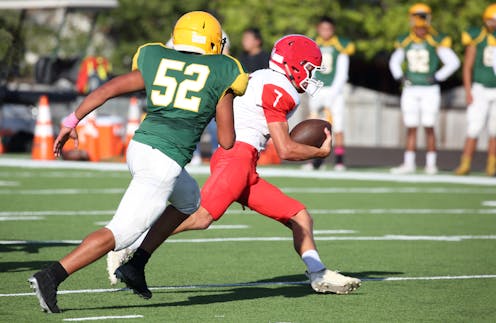Despite ongoing advocacy and education about the risks of concussions from organizations like the Sport Information Resource Centre , Hockey Canada , and legislation like Rowan’s Law , many young athletes still hesitate , or even neglect , to disclose symptoms when they are hurt. Between one-third to over one-half of youth sport participants have indicated they did not tell someone in charge that they had concussion symptoms during play. That means they are at risk of further harm and longer recovery .
Young athletes have a role to play in identifying when they are hurt, as a coach or other adult may not see the impact or be certain if the athlete is under duress . There is continued focus on the prevalence and prevention , diagnosis , and treatment of concussions in sport . But it is equally important to understand what might keep youth sport participants from speaking up — and being removed — when they are hurt.

Our research team of scholars and sport, health, and safety organization stakeholders brought a range of perspectives to examine evidence from 36 research studies on youth athletes (12-17 years old) and self-reporting. We’ve identified key reasons why youth sport participants would be unlikely to tell a teammate, coach, official or their parent that they may have concussion symptoms, such as dizziness, nausea or head pain. Young athletes are less likely to disclose they are hurt because they may be uncertain they are experiencing a concussion, or they might .























